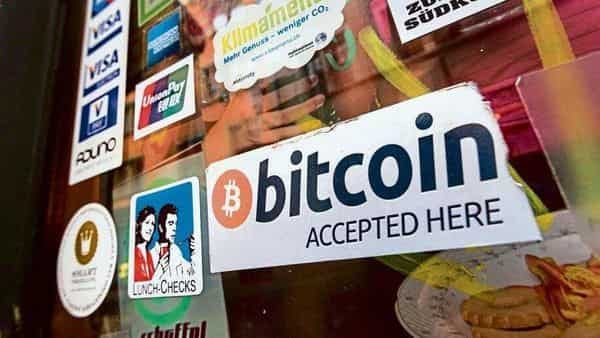

Join our discord server and subreddit for more intellect discussions.
Follow our blog “Big Brains”, if you like the content we post.
Many regard the marketplace for bitcoin — the world’s leading cryptocurrency — as a game of winners and losers played out among hedge funds, amateur investors, geeks, and criminals. the large risk inherent during a highly volatile anonymous digital currency is best left to those that understand the game well, or who don’t really care because they will mitigate the risk or absorb any losses. But bitcoin recently has become more attractive for countries and individuals with limited access to standard payment systems — that’s , those least equipped to manage the underlying risk.
In June 2021, El Salvador became the world’s first country to adopt bitcoin as tender , enacting legislation that takes effect in September. this suggests that bitcoin are often wont to buy goods and services throughout the country, and recipients are legally obliged to simply accept it.
Salvadorans aren’t new this sort of monetary experiment. The US dollar became tender in El Salvador in 2001 and is that the currency utilized in domestic transactions. At that point , the govt of President Francisco Flores allowed the dollar to circulate freely alongside the national currency, the colón, at a hard and fast rate of exchange .
Dollar advocates argued that the expected benefits of macroeconomic stability would outweigh El Salvador’s loss of economic sovereignty, monetary independence, and even seigniorage — the difference between the value of manufacturing coins and banknotes and their face value. However, purchasing power suddenly plummeted and left the economy even more hooked in to remittances, which have averaged about 20% of gross domestic product per annum over the past 20 years .
Using bitcoin as tender will exacerbate the monetary constraints that dollarization revealed — notably, the shortage of an independent macroeconomic institutional framework around which to shape domestic policies. Moreover, bitcoin is far more volatile than the dollar. Between 8 June and 15 June, its value swung between $32,462 and $40,993, and within the period from 15 May to fifteen June, it ranged from $34,259 to $49,304. Such wide fluctuations — and therefore the incontrovertible fact that they’re entirely market-driven, with no scope for policymakers to manage the swings — make bitcoin an unsuitable instrument for macroeconomic stabilization.
El Salvador’s president, Nayib Bukele, tweeted that bitcoin will facilitate remittance transfers and considerably reduce transaction costs. The fees that migrants must pay to send their money home are scandalously high, despite many calls by the United Nations and therefore the G20 to scale back them. consistent with the planet Bank, the typical global cost of sending $200 internationally is approximately $13, or 6.5%, well above the Sustainable Development Goal target of three .
Nonetheless, in 2020, low- and middle-income countries received remittances of $540 billion — only slightly but the 2019 total of $548 billion, and far larger than these countries’ inflows of foreign direct investment ($259 billion in 2020) and overseas development assistance ($179 billion in 2020). Reducing the fees to twenty could increase remittances by the maximum amount as $16 billion per annum .
The large but globally fragmented remittance business relies on electronic transfers through commercial banks’ payment systems, and banks charge hefty fees for the utilization of this infrastructure and therefore the advantage of a secure and reliable international network. But high fees aren’t the sole issue. Many migrants don’t have a checking account within the country where they work, and their families back home can also be among the 1.7 billion unbanked people worldwide. Furthermore, some international migrants may have to transfer money to countries that either aren’t integrated into the international payment system or are restricted in their ability to receive cross-border transfers — for instance , Syria or Cuba.
Bukele is true about the necessity to challenge this technique , including by providing low-cost and low-risk alternatives. But bitcoin is that the wrong tool. Yes, it allows people to transfer value directly and globally without costly third-party intermediation. But its volatility makes it at the best an asset — and a particularly risky store useful — instead of a way of exchange. the danger of a sudden drop by its price means migrants and their families back home can never make certain about the quantity of cash transferred.
Rather than dismiss El Salvador’s bitcoin adoption as just another example of the crypto craze, we should always reflect on why many of us round the world are willing to embrace cryptocurrencies for non-speculative purposes. Perhaps the solution lies within the incontrovertible fact that the present international economic system serves them either poorly or not in the least .
Innovations in digital money, like the M-Pesa mobile money service in Africa, have made significant inroads into many developing countries’ payment systems. But more must be done to supply the infrastructure and regulatory frameworks to support digital money. For now, though, the terrain remains patchy.
Coordinated cross-border policies are urgently needed to make sure that bitcoin and its variants don’t do more harm than good in developing countries. Unless both the general public and personal sectors embrace critical reforms and make basic banking services available to all or any at low costs, people and governments will increasingly be attracted by bitcoin and other low-cost, high-risk, and murky alternatives to traditional banking.
